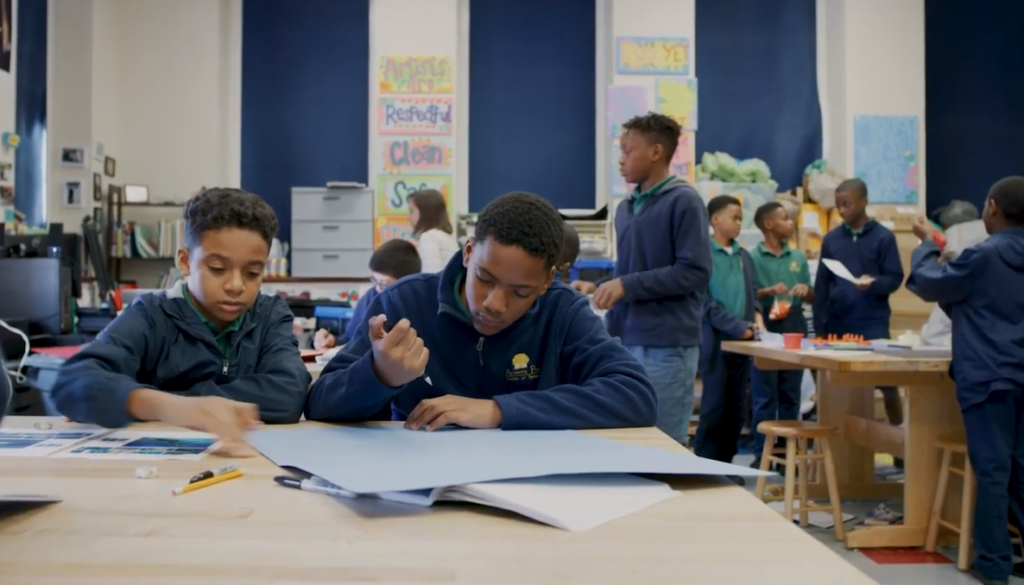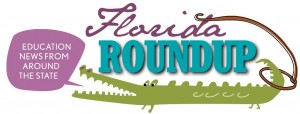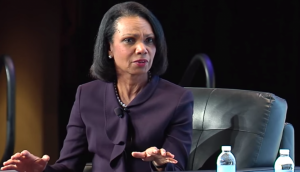
Academy Prep Center of Tampa is a rigorous private middle school for students who qualify for need-based scholarships. Modeled after Nativity Mission Center in the Lower East Side of Manhattan, students attend school 11 hours a day, six days a week, 11 months a year.
Seventeen years ago, a group of business and community leaders in Tampa Bay decided to renovate rather than raze an old, abandoned public school. The spooky building with stately red brick once served generations of Cuban and Italian kids in Tampa’s historic Ybor City neighborhood. The group wanted to restore its former glory by transforming it into a premier private middle school for black and Hispanic students. With help from a then-fledgling school choice program, that’s what happened.
Today, Academy Prep graduates routinely matriculate to top high schools and colleges. And as a new paper published by the R Street Institute spotlights, it’s but one example of the kind of civil society engagement unleashed by the Florida Tax Credit Scholarship, the nation’s largest private school choice program. (The scholarship is administered by nonprofits like Step Up For Students, which hosts this blog.)
Written by Victoria Bell (she authored it while associate policy director for educational opportunity at the Foundation for Excellence in Education; she’s now assistant director of K-12 education relationships at The Philanthropy Roundtable), the case study explores an underappreciated dynamic core to private school choice. Creation of the Florida Tax Credit Scholarship in 2001 energized parents, educators and an incredibly diverse mix of non-governmental entities to expand educational opportunities for Florida’s most disadvantaged students.
The scholarship allowed existing private schools to be a bigger part of the solution. It spawned creation of new private schools. It empowered educators to create new models. It empowered parents to choose them, or not. Bell offers examples of all that. Community groups, like the one behind Academy Prep, where nearly every student uses a tax credit scholarship, got involved. So did hundreds of churches and faith leaders. So did hundreds of corporations, thanks to a funding mechanism that allowed them to donate towards scholarships in return for tax credits. All of this happened voluntarily, with government offering incentives but an otherwise light touch.
The result: Better outcomes at less cost. The program now serves more than 100,000 low-income students, with an average annual family income of $25,743. And the academic outcomes are encouraging. A study released last year by the Urban Institute found scholarship students are 20 percent more likely to earn bachelor’s degrees than like students in public schools. This, even though other rigorous research shows scholarship students were, on average, the lowest performers in their prior public schools. And that the scholarship is worth 59 percent of total per-pupil funding for students in public schools.
The scholarship is a “successful example of public policy and civil society combining to solve a problem,” Bell concludes. “More Florida students than ever before have access to educational environments that are equipping them with the skills they need to pursue the American dream.”
I’m especially grateful Bell included the scholarship program’s impact on Catholic schools. As she notes, the scholarship is a key reason Catholic schools in Florida, unlike Catholic schools in virtually every other state in America, are not continuing to disappear. Enrollment has remained steady in recent years, and even ticked up slightly. Knowing how much Catholic schools have delivered high-quality education to low-income families for generations, this trend line has yet to get the recognition it deserves, either in Florida or beyond.
Bell focused on the tax credit scholarship, but there’s no doubt Florida’s ever-expanding menu of choice programs is stoking similar reactions. More than 130,000 students are enrolled in private pre-schools with help from Florida’s Voluntary Pre-Kindergarten program. More than 30,000 students with disabilities use the McKay Scholarship to attend private schools. Another 13,000 use the Gardiner Scholarship (also administered by Step Up), an education savings account for students with special needs.
The Gardiner Scholarship is still shy of its sixth birthday, but there are already 10,000 vendors in its orbit, from tutors to therapists to private schools. As this new wave of choice expands, look for an even more amplified response from civil society – and even more hands on deck.
 Schools of excellence: Eighty-eight more Florida schools may be added to the 630 already designated as "school of excellence" by the state Board of Education at its meeting Thursday. Those schools earn the label by being in the 80th percentile or higher in points for Florida's school grading system, then maintain it by getting an A or B grade the next year. Designated schools' principals are permitted greater autonomy, and the schools are exempt from daily minimum reading requirements and may calculate class size as a school average, among other benefits. Gradebook.
Schools of excellence: Eighty-eight more Florida schools may be added to the 630 already designated as "school of excellence" by the state Board of Education at its meeting Thursday. Those schools earn the label by being in the 80th percentile or higher in points for Florida's school grading system, then maintain it by getting an A or B grade the next year. Designated schools' principals are permitted greater autonomy, and the schools are exempt from daily minimum reading requirements and may calculate class size as a school average, among other benefits. Gradebook.
District's toll violations: The Broward County School District has been billed almost $10,000 for 34 toll violations by school buses on the Florida Turnpike dating back to 2009. If the violations had been paid on time, the bill would have been less than $50. A school spokeswoman says at least some of the violations are in error, and it's asking for clarification from SunPass. “I’m at a loss for words," says school board member Robin Bartleman. "That is unbelievable that this slipped through the cracks.” Sun-Sentinel.
 Class size changes: A proposal is filed with the Constitution Revision Commission that would make it easier for school districts to comply with the 2002 amendment capping class sizes, and redirect all savings toward increasing teacher pay to the national average. Patricia Levesque, CEO of the Foundation for Excellence in Education and a member of the commission, made the proposal to would allow schools to average out the number of students rather than require them to have a maximum number in each class. If the commission approves the proposal, it would appear on the November 2018 and have to receive 60 percent support to go into effect. News Service of Florida. Gradebook.
Class size changes: A proposal is filed with the Constitution Revision Commission that would make it easier for school districts to comply with the 2002 amendment capping class sizes, and redirect all savings toward increasing teacher pay to the national average. Patricia Levesque, CEO of the Foundation for Excellence in Education and a member of the commission, made the proposal to would allow schools to average out the number of students rather than require them to have a maximum number in each class. If the commission approves the proposal, it would appear on the November 2018 and have to receive 60 percent support to go into effect. News Service of Florida. Gradebook.
Back-to-school tax holiday: Gov. Rick Scott is proposing a 10-day back-to-school tax holiday as part of the $180 million tax cut package in his budget. The holiday, which would run from July 27 to Aug. 5, 2018, would apply to clothing, shoes, school supplies and some computers and accessories. Associated Press. News Service of Florida. Naples Daily News and Fort Myers News-Press. Sunshine State News.
H.B. 7069 lawsuit: Florida school officials will hold a series of workshops this week to work on a draft rule for the "Schools of Hope" provision in H.B. 7069. The Department of Education is proposing to loosen the requirements by which a charter school company can be designated a "hope operator," which could then open a school within 5 miles of a persistently struggling traditional public school. Politico Florida. Miami-Dade County School Board chairman Lawrence Feldman wants to set a Jan. 16 deadline for the Legislature to amend the state's new education law, H.B. 7069. If lawmakers don't act, Miami-Dade would then join other districts in the suit challenging the constitutionality of the law. The school board is expected to vote on the proposal next week. WLRN. (more…)
Florida is making a concerted push toward personalized learning — tailoring lessons more closely to individual students and allowing them to advance through school based on what they know, rather than the amount of time they spent in class.
Other states are, too, but there's something noteworthy about Florida's approach: It's largely being led by school districts.A state law passed earlier this year gives four districts and one university-based lab school the ability to participate in a pilot program to experiment with personalized learning.
A new report from the Foundation for Excellence in Education looks at personalized learning in three states, and notes Florida is taking a "bottom-up" approach. The law is intended to make way for changes districts are already carrying out, or at least hoping to pursue.
Lake and Pinellas Counties began their experiments a couple years ago, as part of a grant program funded by the Bill and Melinda Gates Foundation. The superintendent of Palm Beach County schools, Robert Avossa, was hired away from Fulton County, Ga., which is also participating in the Next Generation Systems Initiative Grant. The Seminole County school district and P.K. Yonge Developmental Research School are also allowed to participate in the pilot program.
 Lawsuit dismissed: Florida has not failed to fulfill its constitutional mandate to provide a quality education for all public school students, a circuit court judge has ruled. Judge George Reynolds III dismissed the suit brought by Citizens for Strong Schools and others against the State Department of Education and legislative leaders. The plaintiffs charged that the state's racial achievement gap, emphasis on testing and lack of adequate funding kept the state from satisfying the terms of a 1998 constitutional amendment. Reynolds disagreed. "The weight of the evidence shows that the state has made education a top priority both in terms of implementation of research-based education policies and reforms, as well as education funding," he wrote. Gradebook. Palm Beach Post. Orlando Sentinel. Gainesville Sun. WFSU. Politico Florida. News Service of Florida. Associated Press. redefinED.
Lawsuit dismissed: Florida has not failed to fulfill its constitutional mandate to provide a quality education for all public school students, a circuit court judge has ruled. Judge George Reynolds III dismissed the suit brought by Citizens for Strong Schools and others against the State Department of Education and legislative leaders. The plaintiffs charged that the state's racial achievement gap, emphasis on testing and lack of adequate funding kept the state from satisfying the terms of a 1998 constitutional amendment. Reynolds disagreed. "The weight of the evidence shows that the state has made education a top priority both in terms of implementation of research-based education policies and reforms, as well as education funding," he wrote. Gradebook. Palm Beach Post. Orlando Sentinel. Gainesville Sun. WFSU. Politico Florida. News Service of Florida. Associated Press. redefinED.
Bush is back: Former presidential candidate Jeb Bush is elected chairman and president of the board of directors of the Foundation for Excellence in Education. He replaces Condoleezza Rice. Bush formed the foundation in 2007 after two terms as Florida governor. He suspended his presidential campaign three months ago. The Hill. Miami Herald. Tampa Bay Times. Florida Politics. Sunshine State News.
Discrimination query: Federal grants are being withheld as the Polk County School District's harassment and discrimination policies are under review by the Office of Civil Rights and the Department of Justice. School Board attorney Wes Bridges says the move is most likely tied to the Obama administration directive saying transgender students should be allowed to use the restroom of their gender identity. Lakeland Ledger.
Bathroom rights: The Obama administration directive on allowing transgender students to use the bathroom conforming to their gender identity could lead to a boom in school bathroom construction. In an email to his colleagues, Sumter County School Superintendent Richard Shirley wrote: "Students will be expected to use group restroom facilities based on their birth gender until necessary remodeling takes place to insure the safety, privacy and comfort of all students in single unisex restroom facilities." Gradebook.
District sex survey: Citing teen pregnancy and sexually transmitted diseases rates, the Hillsborough County School Board agrees to survey students about their sexual behavior. Parents can have their children opt out. Tampa Bay Times. (more…)
Over the past few years, Florida has been overhauling its virtual education system to create what's known as "course access" — policies that let students select courses from a menu of different options.
Among other things, it provides an extra layer of educational choice. In addition to picking their schools, students can pick individual courses.
Florida's policies saw a major overhaul in 2013 legislation. The state's new course-choice system drew one additional virtual education provider into the mix, but students have other options available thanks to policies that let them take online courses across district lines.
A recent white paper from the Foundation for Excellence in Education breaks down how course access policies are playing out in school districts around the country. It spotlights efforts in two Florida districts, in Pasco and Palm Beach Counties.
A few highlights:
Students can access courses their districts don't offer.
Pasco was uniquely positioned to provide certain courses based on staff, capacity and resources. In addition to expanding course options within the district, Pasco also saw an opportunity to provide them to students outside of the district. As a result, 200-300 out-of-district students in Florida now have access to courses like American Sign Language and German.
Former Secretary of State Condoleezza Rice was tapped Thursday to succeed former Florida Gov. Jeb Bush at the helm of the Foundation for Excellence in Education. She’s no stranger to the education reform movement. She’s long been an advocate for school choice.
This fall, during a keynote discussion at the foundation’s annual conference in Washington, she discussed issues from growing up in the segregated South to trusting parents to make decisions about their children's education.
In this excerpt, transcribed and lightly edited, she explains how she supports both improving existing public schools, and giving parents more choices.
 I'm a great believer in public schools and public education. It's one of the foundational institutions of our democracy.
I'm a great believer in public schools and public education. It's one of the foundational institutions of our democracy.
But who are we kidding?
The problem today is that we have a public school system that is, in its very essence, unequal. If you are a parent or a family of relative means, you will move to a district where the schools are good. That's why houses are expensive in Palo Alto, where I live. That's why houses are expensive in Fairfax County, near here. That's why they're expensive in Hoover, Ala., right outside of Birmingham.
If you are really of means, you will send your kid to a private school. And so who's stuck in failing neighborhood schools? Poor kids, many of whom are minority kids. So we already have an opt-out system in the public school system. And all that those of use who believe in school choice are saying is, give parents who don't otherwise have the means a chance to send their children to a school that might work for them.
A new report says the time has come for states to work together to manage the mix of new options that could soon be available to students through digital learning.
The report by Digital Learning Now calls on state policymakers to “formalize the establishment of a multi-state network, focused on Course Access programs.”
“Course choice” or “course access” is the next wave in educational choice. In Florida, for example, it won’t be long before students who can't take, say, a physics or calculus course at their local high school can browse an online course catalog, find a class that works for them, and enroll.
Some might already be able to do that with courses available through Florida Virtual School or a virtual program run by their district. But the state Department of Education is developing an online course catalog that will allow them to choose from a wider range of options. Due to legislative changes approved in 2013, courses offered in other school districts could also be on the menu. And still other new providers could soon start offering classes through the state's nascent course choice system.
Florida isn’t alone. States are developing new digital learning programs that expand education options in several ways, notes the report by Digital Learning Now (an effort of the Foundation for Excellence in Education, which is chaired by former Gov. Jeb Bush). As they do so, they can create new entrepreneurial opportunities for teachers, expand systems that allow students to learn at their own pace, and give school districts a new way to grow enrollment by attracting students outside their geographic boundaries.
Digital learning advocates have started to coalesce around the term "course access." Only about half of U.S. high schools offer calculus, according to a recent report by the U.S. Department of Education, and less than two thirds offer physics. If they're managed properly, and made accessible to students who need them the most, new digital learning policies have the potential to allow students to take courses that aren't available on their physical campuses.
The DLN report tries to push the discussion a step further. If blurring geographic boundaries between school districts can expand the number of options available, why not allow the programs to cross state lines too? (more…)
The private school voucher Gov. Jeb Bush signed into law 15 years ago as part of his sweeping education reform was so quickly challenged and invalidated by the courts that its enduring significance is sometimes missed. Indeed, the Florida Opportunity Scholarship did not survive. But its children have grown like weeds.
The numbers are eye-popping: When the Florida Supreme Court tossed out the state’s first private voucher in 2006, it was serving 733 students. This past school year, three other scholarship programs adopted while Bush was governor reached more than 222,000 students. Throw in charter schools and that number exceeds 451,000.
In other words, one of every seven PreK-12 public education students last year attended a privately operated school.
As the governor’s Foundation for Excellence in Education takes a look back at the effect of the A+ Plan this month, it is rightfully focusing on the impact on traditional public schools. The plan’s laser focus, after all, is on academic standards and the learning gains of every student. It is driven by school grades based on student performance, and the resulting academic data created a momentum of its own.
As an editorialist for what is now called the Tampa Bay Times, I was among the progressives who chafed at the sweeping nature of the change and the abrupt partisan politics that made it possible. And yet the data was a punch in the gut. The Times had for decades been a faithful defender of a desegregation plan that put black and white children together on the same campuses, even as the burden fell disproportionately on black families. And yet A+ provided a disturbing reality check. It revealed that the gap in academic performance between black and white children in Pinellas remained shockingly wide. The A+ plan, among its other legacies, has forced all of Florida education to take that gap seriously.
In the 1999 Legislature, though, the biggest political scrap was over the voucher. Opportunity scholarships were tied to the new school grades under the law, and were available to any student who attended a district school that had two failing grades in four years. A lawsuit challenging the voucher was filed on June 22, 1999, the day after Gov. Bush signed the education reform into law.
As it turns out, that was only the beginning of Florida’s extraordinary transformation in parental empowerment. (more…)
 Anybody watching the scrum over the tax credit scholarship bill in Florida has been treated to quite the display of dueling op-eds.
Anybody watching the scrum over the tax credit scholarship bill in Florida has been treated to quite the display of dueling op-eds.
Educators (like here and here) have been among those weighing in against the bill and/or the scholarship program, which is administered by Step Up For Students, which co-hosts this blog. But it's noteworthy, given prevailing narratives, that a number of educators have been on the pro-parental choice side, too.
Their views and backgrounds are diverse (see here), so pigeonhole at your peril. But several respectfully stressed that support for expanding school choice does not pit public vs. private.
Wrote Stacy Angier, principal of Abundant Life Christian Academy in Margate, in the South Florida Sun Sentinel:
"Our scholarship parents tell us, all the time, that their children are doing better, that their children love school now. I don't bring this up as a knock on their former schools. It doesn't mean our school is better; it means we're different - and for individual students, different may be better."
Wrote Steve Knellinger, lead administrator at St. Petersburg Christian School, in the Tampa Bay Times:
"We view public schools in Pinellas County as partners, not adversaries. We believe we are helping them, and they are helping us. If students want to attend a traditional neighborhood public school, or a fundamental school, or a magnet school, because that's where they're most likely to find success, why not? At the same time, if students who are not successful in public schools can find success at a private school like ours, why not?"
Wrote Nadia Hionides, principal of The Foundation Academy in Jacksonville, in Context Florida:
"I know that the more choices we offer, the more opportunities there are for children to succeed. Only in the diversity that is offered by all of these choices, public and private, can we possibly meet the endlessly diverse needs of all our children."
Several of the op-eds also have this thread in common: Respect for parents' ability to know what is best for their kids. (more…)